Desert discernment
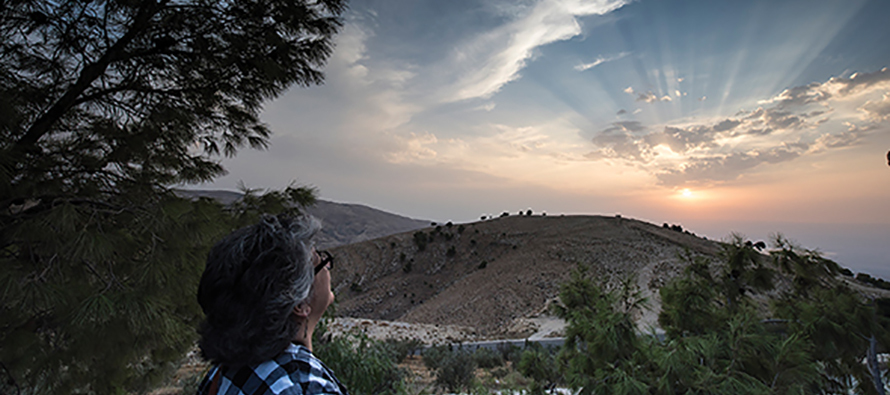
Image: Mount Nebo, where Moses gazed at the Promised Land before dying.
My trip to the desert land of the Bible began in Toronto, Canada. I was attending the Associated Church Press conference there in chilly, rainy April. At an evening networking event, a profusion of red-and-white checkered fabric caught my eye. A woman was bedecking attendees with colorful scarfs and I joined the growing group around her.
“It’s called a keffiyeh,” she said, a woven scarf worn by Arabs as a headdress, but some also wear it around their necks. She was giving everyone there one as a gift and showing them how to wrap it correctly.
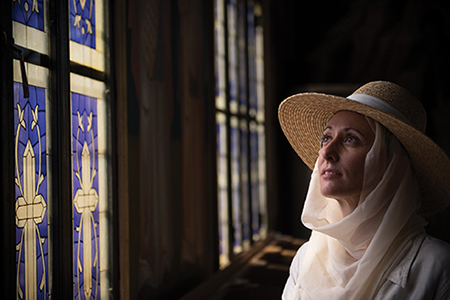
Her name was Christine and she was a consultant for the Jordan Tourism Board. She was attending the conference to encourage religious media to visit this country that figures so significantly in both the Old and New Testaments.
Before that moment, it had never crossed my mind to go to Jordan. I had never thought of it as part of the Holy Land. But Jordan is the literal wilderness referenced throughout scripture where so many trials and transitions occurred. Jordan was a place of retreat and revelation for Israelites, Jews, and early Christians. Our salvation history begins with an Exodus into the desert, continues with the desert wanderings of John the Baptist, and culminates with the desert temptations and teachings of Jesus. As a layperson who writes about vocation, I felt urged to explore firsthand how the desert relates to discernment.
If your spiritual journey has taken you somewhere barren, you are in good company.
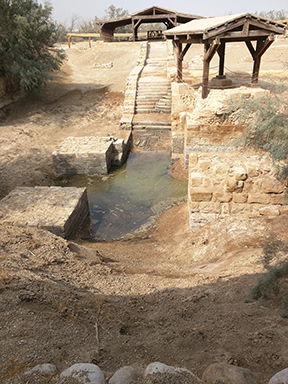
A few months after the conference, Christine organized a press trip specifically for Catholic writers and invited me to join. I’ll admit I was a little scared to go somewhere so unfamiliar. But that tinge of fear also helped me decide to go. All spiritual journeys start that way, with fear of the unknown. Perhaps that’s even what compels us to go on them in the first place: There’s something uncertain inside us, a question that demands an answer, an agitation that moves us forward.
Get lost
One of the best parts of this incredible trip included a visit to Wadi Rum, a seemingly endless and eerily silent red desert valley of sandstone and granite. It was the stomping ground of Lawrence of Arabia and the shooting location of The Martian, a recent Matt Damon film. It is one of the most hauntingly beautiful places I’ve ever been.
One of my travel mates was Ed Langlois, a reporter for the Catholic Sentinel, from a place so different than Wadi Rum—the moist, green, gentle land of Portland, Oregon. Ed mused about how the desert landscape, humbling in its starkness, must have shaped its people’s understanding of God. Their God needed to be strong and very definitively on their side if they were to survive.
While in Wadi Rum, our group was in the care of Bedouin, the nomadic tribespeople who live there, and indeed they took lavish care of transporting, feeding, and sheltering us. Good thing, because I was acutely aware that I wouldn’t have lasted a day in this desert without them and their know-how—an experience of being vulnerable to those, or One, who will look after me.
No matter how isolated you might feel, you’re never alone. No matter how lost, God will lead you.
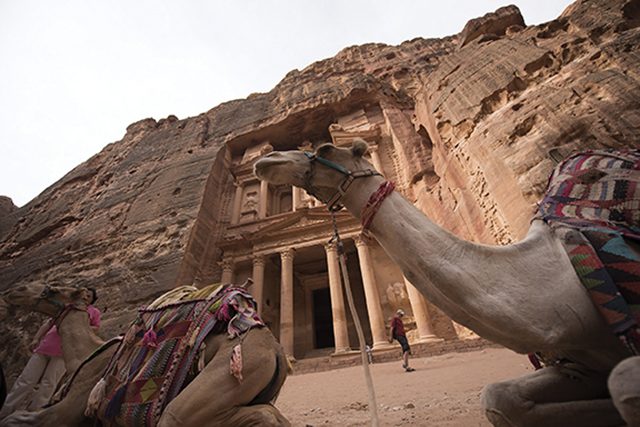
Home stretch
I glimpsed the Promised Land from the same spot Moses did—atop Mount Nebo—and like Moses, I did not enter it. I haven’t been to Israel and hope to go someday, and I’m now glad I went to Jordan first. It was an opportunity to reflect on the necessity of preparation before reaching a destination, that it’s absolutely essential to spend a period in the desert—literally or metaphorically—and be tested, to discover if a vocation, a mission, an identity is meant for you.
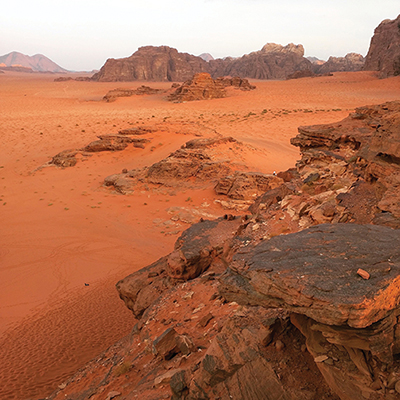
Moses’ trek from Egypt to the Promised Land ended in what was then called the Plains of Moab, home of the Ammonites. It included the lands east of the Jordan River and along the Dead Sea in the western part of modern Jordan. The Israelites—so close to their final destination—camped in a small lush area northeast of Mount Nebo.
There is reassurance in knowing that the trials of wandering don’t last forever; God does have an end-goal in mind for everyone. He keeps his promises and brings his people home at last.
God told Moses that he would not cross the Jordan with his people and commanded him to go to the top of Mount Nebo—which overlooks the Dead Sea, the Jordan River valley, and Jericho—to view the land of Israel. (Today, on a clear day, Jerusalem is visible from Mount Nebo’s promontory.) After Moses died, Joshua led the Israelites across the Jordan and into the Promised Land. The crossing point is directly opposite Jericho at a place known as Bethabara.
At some point on a journey, you learn that as important as leaders, mentors, and guides are, you don’t have to rely on them. You gain the wisdom and experience to make it on your own the rest of the way.
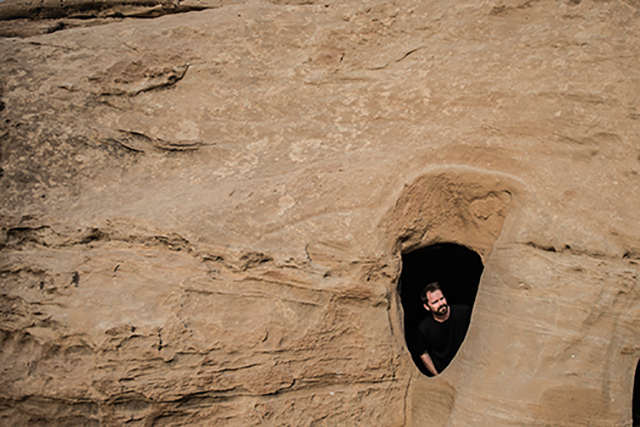
Next step
At Bethabara, nearly 1,400 feet below sea level, the lowest place on earth, in the exact same spot that Joshua led the Israelites into the Promised Land, the heavens opened for the prophet Elijah, who ascended into it on a fiery chariot, a stone’s throw from where Christ would one day be baptized, and again on the occasion of that Baptism, when the Holy Spirit descended like a dove and God spoke to his beloved.
This place, where John the Baptist lived, conducted his ministry, and baptized Jesus, is no idyllic respite. Also called, then and now, Bethany Beyond the Jordan, it’s a hot, dusty plain under unrelenting sun, a shelterless wilderness of tangled reeds and rock, swarming with flies. It’s fitting that it’s physically unpleasant, because spiritual transitions of great magnitude require uncompromising strength and fortitude.
“Life begins where your comfort zone ends,” goes the popular saying. If anyone lived that adage, it was Moses, John the Baptist, and Jesus, and they challenged everyone to do the same.
In the New Testament, Jordan was called Peraea, which means simply “the land beyond.” The key players in the mission of salvation were willing to bear deprivations and sacrifices to go the distance for God’s sake. Are you?
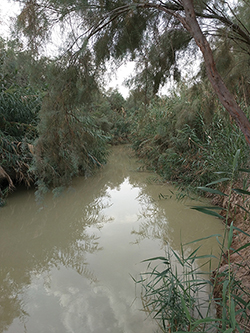
Grow with God
Sometimes returning from a retreat and readjusting to the regular world again can feel awkward, even a bit like a desert of its own. That makes perfect sense because we might not be the same person we were before and we may be heading in a new direction. We’re challenged to bring our desert experiences to bear on our everyday life.
Fortunately after being with God without distractions for a good long while, I could discern God’s call more clearly. For me, that meant putting pen to paper and committing to a deepened and renewed vocation to writing. I found a wellspring of inspiration and insight in the desert, and I soon stumbled on more, closer to home, in the words of author Alice Camille, writing in Prepare the Word:
"According to the Bible, this is what God sees in every wilderness: not vacant wasteland, but a place for flowers to bloom. Not barren desert, but soil waiting for rain. It’s a quiet space for tired disciples to take their rest, for hungry multitudes to be fed. Wilderness is where water can spring from a rock or bread might fall from heaven. Meat can be supplied by a passing flock of quail. To God, wilderness is a clean canvas on which to paint a beautiful future."
What beautiful future do you see emerging from your desert wanderings?
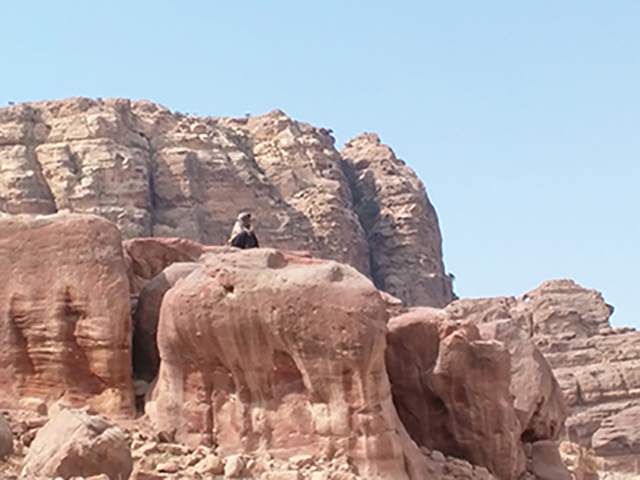
Related article: vocationnetwork.org, “How to know where God is leading you,” Vision 2005.
Tags
Related
- Questions Catholics Ask: What are the different forms of prayer?
- What does “success” look like in discernment?
- How to find a guide for your vocation adventure
- Beware of bots and bad actors as you engage online
- Call stories to help you discern
- Five reasons to pray the Liturgy of the Hours
- Tune into your prayer life
- Embody your decisions
- Your mission awaits you! Pope Francis' message to young people
- My portable prayer life Read More
Most Viewed
- Find your spirituality type quiz
- Questions and answers about religious vocations
- Celibacy quiz: Could I be a nun? Could I be a brother? Could I be a priest?
- Resources for older discerners or those with physical and developmental differences
- About Vocation Network and VISION Guide


